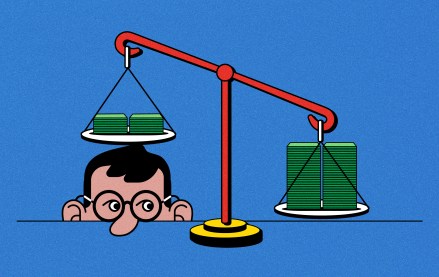Secure your place at the Digiday Publishing Summit in Vail, March 23-25
Citi’s Carla Hassan: Marketing is now about an ‘end-to-end experience’
Fresh off the bankruptcy of Toys R’ Us, Carla Hassan, the former CMO of the toy giant, joined Citi as chief brand officer. Just a few weeks into the new job, she talked about lessons learned and her vision for brand Citi for 2019.
This interview has been lightly edited for clarity.
What’s the most interesting thing about branding Citi?
For me, this is a brand that’s been around for such a long time. From that perspective, it’s an iconic brand. But then you contrast that with all the stuff in the banking landscape. There are new players, new emerging models and for me, what was exciting about this role was it provided an opportunity to help build on that rich history. The global nature of the role is also very exciting to me. When you think about clients and customers, they also are thinking about banking very differently than they once did. It’s gone through a large restructuring. The other thing is, how do we tell that story of our impact. I’m very excited to work for an organization that really is willing to use the corporate voice and the corporate platform to impact the communities they serve. Issues meaningful, and maybe polarizing.
“Brand purpose” is the hot phrase of the year. But it’s increasingly tough to know when to be in the conversation, especially political conversation.
This is the year where brands have gone from making statements to putting their money where their mouth is. But I don’t see it as an issue. I’ve dug in in the last couple of weeks on the impact we’ve had on communities and clients we serve. To tell those story of progress and growth in the communities we serve is a huge opportunity and can set Citi apart. Fact is, customers are using their wallets to show you it’s important for you to have a purpose. Brands have to impact social issues. We have stories to tell.
A lot of the new pressures mean marketers need to learn new skills. What changed?
So we used to as marketers think about marketing as this creative thing. Now we have to think of it as an end-to-end experience. Marketing is well positioned for this. That means that marketers need to be data scientists. Maybe even need to be the CTO. Every marketer today needs to be intimately knowledgeable about the tech stack. And whereas we were able to relegate that to someone else before, the proliferation of tech and data means we have to do this.
We’ve also seen research, including our own Digiday+ research, showing that more marketers feel the pressure to connect spend with revenue more than ever.
Makes sense. There is such a proliferation of tools available to us to drive the business. Take AI.
It may be the future. But the thing we’ve gotta be careful of as marketers is this: AI may make us smarter, but we gotta make sure it doesn’t make us lazier. It has to fuel creativity. There needs to be a balance between data and empathy. We need to connect these dots better.
Do you think that marketers need to stand up to platforms more? How do you see that relationship?
Facebook, Google, all those other companies that aren’t as big. They’re all partners. I think we have to make sure we’re making sure to partner with them. Our goal with our media partners is to make sure our messages and communications and marketing tactics are where they need to be with the right audience. We need to hold each other accountable as partners.
More in Marketing

Brands at eTail Palm Springs share lessons on the ‘messy middle’ of building AI tools
Here’s a rundown of lessons brands have shared about their AI implementations so far.

Despite 2025 revenue beats, The Trade Desk’s stock price falls sharply after earnings update
Despite 2025 revenue nearing $3 billion, lower-than-expected Q1 guidance disappoints, as CEO Jeff Green pushes back against competitors and detractors.

Brands celebrate tariff reprieve, but fresh uncertainty looms
After the Supreme Court struck down Trump’s tariffs, brands welcomed the relief but say ongoing trade uncertainty and unanswered questions about refunds are keeping business decisions on hold.







